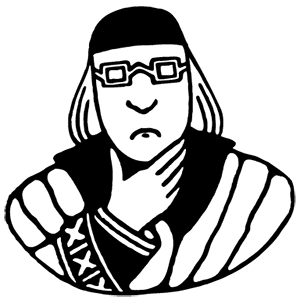 |
| image licensed under creative commons by Briar Press, at briarpress.org |
Some of the key distinctions among these beliefs include the nature of knowledge: what it is, where does it sit, who possesses it, is it an objective entity, does knowledge get transferred from one entity/person to another, can one transfer one's knowledge to another, how does one acquire knowledge, what is the outcome of teaching, what is the antecedent of learning, how does learning occur, what model best explains the brain, knowledge and learning.
I recently asked my students to blog about these to questions. Below I consider my own answers.
- What is learning?
- What is knowledge?
Knowledge
There is
knowledge that the individual holds, that a group holds, that is stored in
books, databases, devices, and knowledge that we aspire to gain. I believe that the word knowledge refers to
skill, ability and our explanations of our environment and the problems we
face. As we interact with the world our knowledge develops. I don't think there
is much "objective knowledge;" there are currently accepted "facts."
But knowledge evolves and changes. One who seeks knowledge is more concerned with the testing, interpretation and advancement of currently accepted information, than with the acquisition of facts.
Personal
knowledge is highly idiosyncratic. What we know is based on the unique
combination and order of experiences we have had and the degree of interest
with which we engaged with those experiences.
Learning
Learning is a process of
examining our existing knowledge in the face of new information. It is not the direct transfer
of knowledge from one person to another. A teacher does not transfer a
packet of knowledge from her knowledge store to that of the learner. A teacher conveys a verbal (or other) representation
of her knowledge. A learner will interpret this representation through the dual
lenses of her past knowledge and her interest. Is this information worth
looking at closely? Does it make sense in the context of prior knowledge? Does
it ring true based on past experience?
Our definitions of knowledge and learning are changing
In a world in which information is abundant and
accessible, and in which our lives are filled with complex problems, people no
longer rely - for their day to day living - on the knowledge which they alone
hold. We have the capacity to work with knowledge that is outside of ourselves
(we operate the controls of a machine and make woven fabric without having a
knowledge of weaving, we cook food that we do not know how to raise or gather,
we compute large amounts of data and draw conclusions that we could not draw
based on our own knowledge alone, experts in biology, economy, and health
interact with the knowledge that exists in their "fields" and among
multiple fields).
My own notions of knowledge and learning are evolving.
Through my own study of knowledge and learning and and reflection on my own practice as a learner and teacher I become aware of my beliefs. My "knowledge about knowledge" is challenged by the ideas of my colleagues and by my own observation.
I hope that my students will teach their students to reflect about learning and knowing and encourage them to expand their ideas.
Reference:
Bruner, J. (1996). Folk pedagogy, in The Culture Of Education. Cambridge MA, Harvard University Press. Ch2 (44-65)
1 comment:
Hey Jane, Wow, not many recent posts. Are you busy teaching or something? Mike B.
Post a Comment